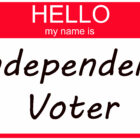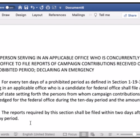Homepage Featured
Democrat Manny Gonzales wants to be mayor. Republicans run his campaign.
|
Eight years ago, Albuquerque Mayor Richard Berry, a Republican, cruised to re-election with almost 70% of the vote. Yet this year, with just three weeks left for a candidate to produce the 3,000 petition signatures necessary to get on the ballot, it seems likely there won’t be a registered Republican running for the job for the first time since 1974, when the city established its current system of government. But that doesn’t mean prominent Republicans don’t have a candidate to promote. Jay McCleskey—a formidable GOP strategist—is working for Bernalillo County Sheriff Manny Gonzales, a Democrat aiming to unseat Mayor Tim Keller.
McCleskey shepherded both campaigns of former Republican Gov. Susana Martinez and served as her chief strategist. He won the Albuquerque mayoral seat for Berry, twice.








